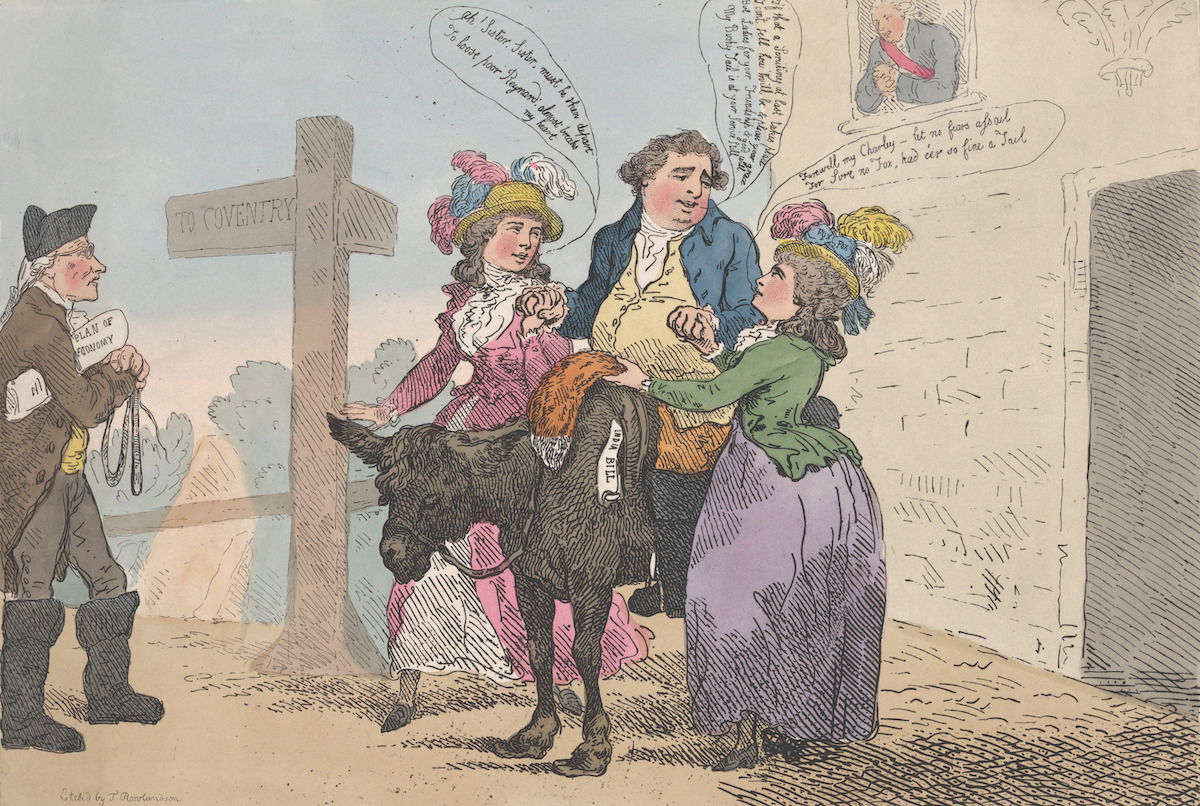‘Edmund Burke and the Invention of Modern Conservatism, 1830-1914’ review
The winner of the 2018 Longman-History Today Book Prize provides an intriguing and accessible study on the evolution, dissemination and continued influence of Edmund Burke’s political ideas.

The scene was a glittering one. On one long wall hung The Lady of Shallott, on the facing one The Death of Ophelia. The long tables shone with glasses and crockery. The food (Dorset crab, Dexter beef fillet, baked white chocolate cheesecake) and wine were excellent. The audience – Conservative politicians and intellectuals – heard senior colleagues speak about Conservatism and its identity, past, present and future, with references to Burke repeatedly at the fore. A message from the Prime Minister referred to conservatives ‘across Europe’ being ‘inspired by Burke and the great figures of our history who continue to speak to us today’.
Derby? Disraeli? Salisbury? Balfour? Baldwin? Well, no, that was Theresa May in May 2018 and the occasion, held at Tate Britain, was the award, by the Alliance of Conservatives and Reformists in Europe, to the ‘politician or public figure who has done the most to advance conservative values’. The speakers in 2018 included Michael Gove, Daniel Hannan and Roger Scruton. The winner, Bart De Wever, leader of the New Flemish Alliance, was referred to by May: ‘I know that, as a committed Burkeian, he continues to be guided by the principles of that great philosopher.’ In 2017, it was a similar picture, the setting was the National Gallery and one of the honorands was John Howard, the former Prime Minister of Australia.
How did we get here? In her thoughtful, consistently interesting and accessible work, Emily Jones explains Burke’s enshrinement in the Conservative pantheon with reference not to free-floating texts but to the particular contingencies and developments of the late 19th century. In particular, a series of political needs, intellectual strategies and pedagogic responses came together. The debates on Irish Home Rule and the reconfiguration of British politics that accompanied them are presented as crucial in transforming Burke’s status as a political thinker. A Whig who had deserted the radicals in response to the French Revolution became a model cited to provide a back history for Liberals who joined the Conservatives in opposition to Home Rule. At the same time, Burke was also of value to Gladstone, for whom, as Jones notes, Home Rule was part of a process of continuous constitutional evolution and Burke was both a guide to the possibilities of change and a guarantor of fundamental continuity.
As Jones shows, far more was involved. She emphasises the value of Burke to late 19th-century Conservatives, fearful of attacks on property, religion and constitution. Burke was deployed to present a positive, historically informed, organic Conservatism capable of appropriate reform. Jones also probes the value of Burke to the developing teaching of history at school and university level. The publication of editions of Burke is discussed, as is their role in the dissemination of views of Burke as the founder of Conservatism. He became canonical – in English literature as well as history.
Jones provides a case study of how political traditions were constructed and adapted and thus historicises key texts. Alongside William Hay’s recent study of Lord Liverpool and Angus Hawkins’ of Derby, there is now a goodly offering on Conservative thought to complement earlier work by Jim Sack and others. It is surprising to see Jones not engaging with Jonathan Clark and Maurice Cowling, both of whom offered important conceptual insights, while the former has also edited Burke.
It is particularly useful to see ‘reception theory’ pushed to the fore. All too often, texts are made operative and treated as canonical without due attention to their changing impact. Thus, for example, too much work on strategy deals with the strategic thought of strategic thinkers and not the strategic action of strategic actors. Jones’ work offers much not only for it specific topic, but also more generally.
- Edmund Burke and the Invention of Modern Conservatism, 1830-1914: An Intellectual History
Emily Jones
Oxford University Press 288pp £60
Jeremy Black’s recent books include Mapping Shakespeare (Bloomsbury, 2018), English Nationalism: A Short History (Hurst, 2018) and Italy: A Brief History (Little, Brown, 2018).